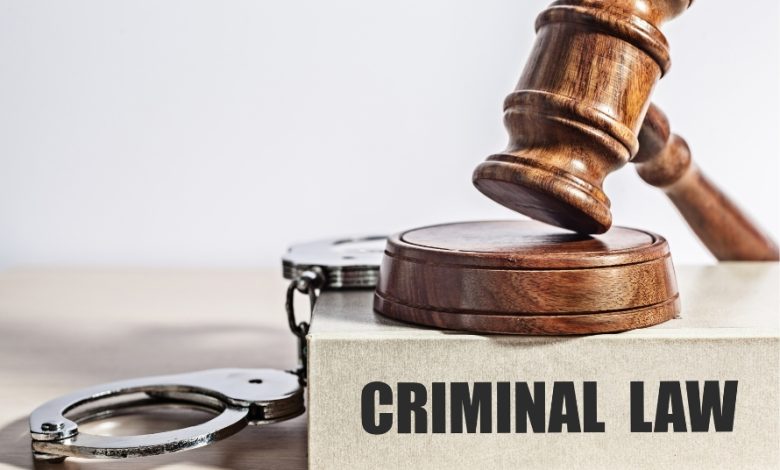The Differences Between Criminal Law and Other Legal Fields in Calgary

Working with the law is a wild ride. There are several areas of law that you can focus on and become an expert with experience and resources available to do your best work.
But that is also the question, what does each of those areas have in common? How do they differentiate from each other? Each area has their own set of particularities that define them.
First and foremost, we need to define and understand broadly what each area of law is in order to compare them. Perhaps one of the most different areas of law is Criminal Law, so we will use it as a matter of comparison between the others.
In the next following short topics, we will discuss those things and clarify the differences between those areas of law.
Criminal Law
Firstly, let us define criminal law and understand a bit of the nuance of this area of expertise. Criminal law refers to the system of law that pertain to criminal offences, and a criminal offence can be quite hard to deal with, considering the stakes are the highest – if you have been charged with a crime you may lose your liberty.
Ruled in its majority by a Criminal Code, criminal law can still use other federal laws when ruling. In it, there are two offences you can commit. Summary convictions are considered minor offences, things such as disturbance, trespassing at night, or loitering. An indictable offence, however, is much more complicated to deal with. WIth much harsher sentences, these are the crimes related to things such as murder or theft.
Working with the idea that a person is innocent until proven guilty, it is the responsibility of the prosecution – that is, the State being represented – to prove the accused is guilty. In criminal law, there are certain procedures that must have been taken to ensure the rights of the accused are not being infringed in order to have a fair trial and unbiased ruling. Any piece of evidence collected in an illegal manner, such as an illegal search. May not be used by the judge against the accused.
Criminal Lawyer
An experienced Calgary Criminal Lawyer can support you through this process during all stages to ensure the best possible defence for the accused based on factual evidence and argue for their innocence, or for a more reasonable and lenient sentence if they have been found guilty. A criminal offence can be considered a “crime against society.”
Besides losing their liberty for sometimes a long time or even life, the accused found guilty may live with the stigma of being a convicted criminal on their file.
Differences in Civil Litigation
Civil litigation, in contrast with criminal litigation, however, relates to disputes between two parties. Due to a conflict between them that one or more parties may feel entitled to compensation. Those conflicts do not arise due to criminal offences, it is instead a conflict of interest – employment issues, and damages to property are good examples.
As a conflict between parties, a judge must decide those cases based upon something called the “burden of proof” which relates to the chances that one side is in the right. Evidence, experts, and witnesses may be brought similarly to criminal litigation, and some cases are much simpler than others. After consideration based on evidence a judge will rule in favour of one side depending on this “burden of proof” and the favoured side will most likely be compensated – usually monetarily, but can also come with terms such as the losing side needing to perform in a specific way.
Some laws vary depending on where you are, but practices are much more likely to be similar.
Real Estate Law
Real Estate law refers to the system that rules over matters related to property. In Alberta, the main law that refers to real estate is the Real Estate Act, which defines the framework. In which real estate will be dealt with and managed by the province. Followed by municipal regulations and bylaws, those exist in the cities to better manage their spaces based on their city development plan. It may include things such as zoning, taxes, permits, limits, and more.
Real estate law also includes things such as buying and selling property. It residential or commercial, purchasing your first home, use of residential and commercial properties.
If you are looking into selling your house or buying your first home,will need to deal with real estate law. It is a voluntary transaction or contract between two parties ruled over by a system of laws designed to create a fair environment, instead of an offence against something such as in criminal law.
As licensed professionals, real estate lawyers are able to deal with a variety of needs from drafting and gathering documents. To representing you during a negotiation for a property. Using this system they will defend your rights while supporting you during transactions and deals, having your best interests.
Corporate and Commercial Law
While each is unique and with different sets of laws, corporate and commercial are similar in their nature. Both relate to the well-being of a corporation and ensuring that it is following all regulations. Both federally and provincially, so that the company can operate smoothly and conduct business.
Corporate law companies as an entity, that is, a being before the law which has roles, responsibilities, and rights. Corporate Lawyers in Calgary will defend the company as this entity and always have the best interests of the company rather than focusing on employees.
Commercial law, on the other hand, deals with the company from the inside. Defining things such as how companies deal with employees by following regulations that the company is not breaking any rules. So it can operate without issues. Commercial lawyers support the day-to-day activities of a company.
Criminal law is but one of the legal fields that creates the network of laws that regulate how society works. Criminal law differs the most because only then that the State is prosecuting someone due to damages against society itself. Due to the severity of those crimes, criminal law is normally harsher in its sentences towards the individuals accused.




